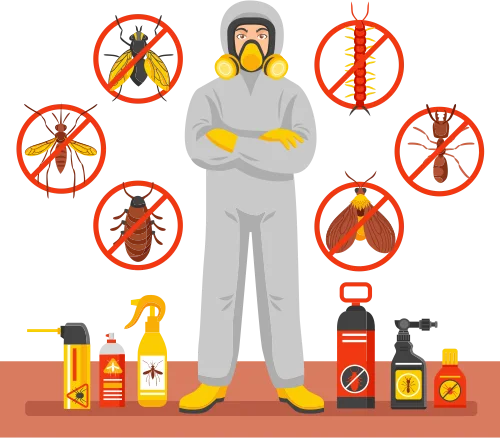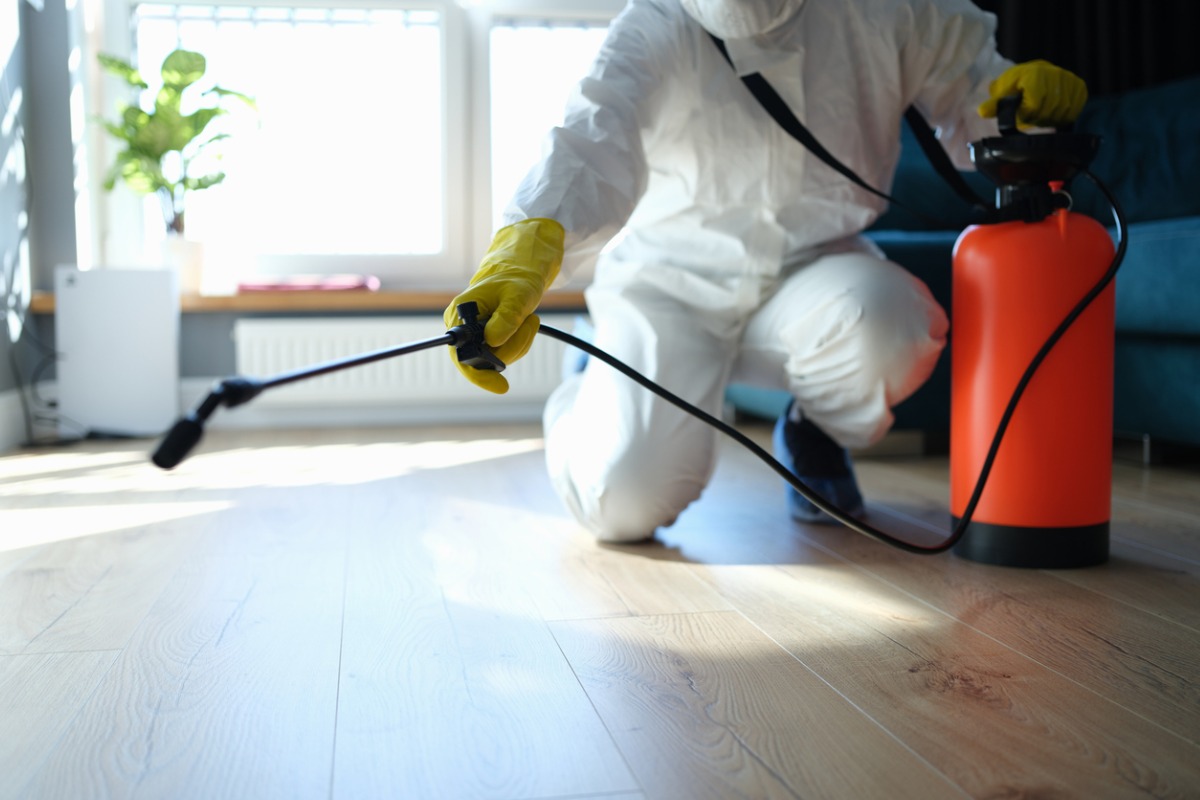Expert Pest Control Service Coquitlam: Protect Your Home from Invaders
Expert Pest Control Service Coquitlam: Protect Your Home from Invaders
Blog Article
Safe and Dependable Insect Control for Lasting Security
Reliable parasite management calls for a complex strategy that balances environmental stability with the demand for effective pest reductions. The subtleties of these approaches might not be immediately clear, triggering a more detailed evaluation of the practices that can lead to sustainable pest control end results.
Recognizing Parasite Control Approaches
Pest control encompasses a range of techniques focused on managing and eliminating undesirable bugs and rats that can threaten both wellness and home. Understanding these techniques is important for reliable insect monitoring.
The primary classifications of insect control approaches include mechanical, biological, and chemical approaches. Mechanical techniques include physical barriers and traps to stop bug entry and capture unwanted varieties. Making use of displays on windows or utilizing sticky catches can significantly lower parasite populations without presenting hazardous substances - exterminator coquitlam.

Chemical pest control is often one of the most acknowledged approach, utilizing pesticides to remove insects. These chemicals can be effective however should be utilized with care to avoid damaging results on non-target types and the environment.
Benefits of Eco-Friendly Solutions
Exactly how can environment-friendly remedies change insect control methods? The adoption of environment-friendly pest control approaches uses numerous advantages, dramatically enhancing the performance and safety of insect administration (exterminator coquitlam). These remedies make use of all-natural ingredients, decreasing the reliance on harmful chemicals that can present threats to human health and wellness and the environment. This shift not only shields households and pet dogs yet also minimizes the capacity for dirt and water contamination.

Another benefit is the positive impact on regional biodiversity. Green solutions are developed to target details bugs while protecting helpful bugs and wild animals, promoting a well balanced community. This strategy aligns with the expanding consumer need for lasting techniques, improving the reputation of parasite control providers.
Integrated Pest Administration Methods
The implementation of environmentally friendly options naturally brings about the adoption of Integrated Bug Administration (IPM) strategies, which further improve bug control efficacy. IPM is an all natural technique that incorporates several strategies to handle parasite populations while reducing environmental impact. This method highlights using biological, cultural, mechanical, and chemical controls, making certain a lasting and well balanced technique of bug monitoring.
One essential aspect of IPM is the complete evaluation of pest activity and environmental conditions. By keeping track of bug populaces and identifying their life cycles, experts can implement targeted treatments that disrupt the bug's habitat or lifecycle, lowering dependence on chemical pesticides. Additionally, social methods such as plant rotation and habitat adjustment can significantly reduce bug establishment and recreation.
One more essential component is making use of biological control agents, such as helpful pests or bacteria, which can normally suppress pest populaces. When chemical applications are essential, IPM prioritizes the use of low-risk pesticides and uses them precisely, minimizing exposure to non-target microorganisms and people.
Integrating IPM methods not just enhances parasite control effectiveness yet also advertises a much safer ecosystem, straightening with the growing demand for sustainable practices in pest management.
Safe Practices for Homeowners
Comprehending the importance of secure methods in pest control can empower house owners to effectively handle bug concerns while guarding their health and the environment. Applying preventative steps and non-toxic approaches is important in reducing exposure to dangerous chemicals.
House owners must initially evaluate their environment for problems that attract pests, such as standing water, food, and clutter waste. Routinely cleaning and securing access factors can deter insects from invading the home. Making use of natural deterrents, such as vital oils or diatomaceous planet, can offer reliable alternatives to chemical pesticides.
When chemical therapies are necessary, homeowners must choose items that are particularly classified as risk-free for domestic use. It is important to follow application standards meticulously to avoid overexposure. Utilizing targeted treatments in areas where insects are recognized, instead than covering splashing, can dramatically lower chemical use.
Last but not least, maintaining open interaction with parasite control specialists is essential. Property owners must ask regarding the safety of products used and demand environmentally friendly choices whenever possible. By adopting these secure techniques, house owners can develop a much healthier living environment while effectively taking care of pest issues.

Tips for Long-Term Protection
Developing a pest administration method that stresses long-lasting defense can greatly enhance the efficiency of the safe practices formerly discussed. To achieve this, homeowners need to apply routine inspections of their property, concentrating on hidden areas such as attic rooms, basements, and crawl areas. Early detection of pest activity is how to control pest important in preventing infestations from taking hold.
Furthermore, preserving a tidy atmosphere is important. This includes correct food storage space, immediately cleaning up spills, and routinely throwing away garbage. These methods lower attractants that draw pests into the home. Securing entrance factors, such as cracks around doors and home windows, can properly obstruct potential bug access.
Landscaping ought to exterminate insects additionally be thought about; maintaining plants cut and keeping a distance in between plants and the home minimizes hiding places for parasites. Using natural deterrents, such as important oils or diatomaceous earth, can additionally prevent invasions without resorting to extreme chemicals.
Finally, teaming up with an expert pest control solution for periodic analyses can offer an extra layer of safety and security. These experts can use customized recommendations and advanced treatments, making certain that your home stays protected against pests in the lengthy term.
Final Thought
Finally, reliable and risk-free pest control requires a diverse technique that stresses eco-friendly techniques and integrated parasite management. By carrying out all-natural deterrents, conducting normal examinations, and preserving appropriate sanitation, building owners can significantly minimize bug populations while securing useful pests and the atmosphere. Collaboration with professional parasite control services boosts the efficiency of these approaches, making certain tailored remedies that supply long lasting defense and tranquility of mind versus future infestations.
Reliable bug management requires a complex technique that balances environmental integrity with the need for effective insect reductions. The fostering of green parasite control approaches supplies many benefits, dramatically improving the efficiency and security of pest monitoring.The implementation of environmentally friendly solutions naturally leads to the fostering of Integrated Pest Management (IPM) techniques, which even more boost parasite control effectiveness. exterminator coquitlam. By keeping track of bug populaces and identifying their life cycles, professionals can execute targeted interventions that wikipedia reference disrupt the parasite's environment or lifecycle, lowering reliance on chemical pesticides.In final thought, risk-free and trusted pest control requires a diverse technique that highlights environmentally friendly techniques and incorporated pest management
Report this page